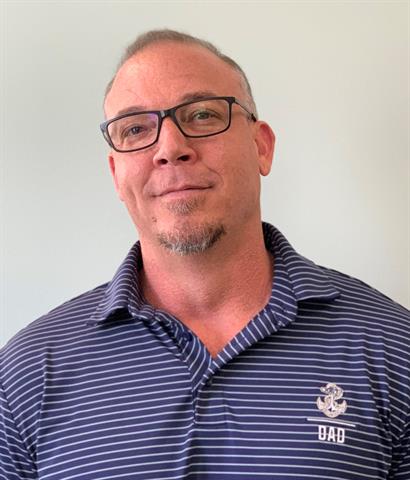 Michael Hassel |
Michael Hassell is the director of safety at Equipment Depot. He has over a decade of experience in health and safety as well as machine operations.
Safety should always be the most critical concern when it comes to industrial operations. It is your responsibility as a business owner or manager to protect the physical well-being of your co-workers and employees by providing a safe work environment and implementing the proper processes to prevent accidents. It is especially important in manufacturing fields where danger is inherent on the shop floor.
In addition, workplace injuries and accidents should be front of mind for several other reasons - they cost employers hundreds of millions of dollars every year, present regulatory compliance issues with organisations such as OSHA, and can harm your reputation as a business. The silver lining? Almost all workplace injuries are avoidable when proper training and operating procedures are in place.
Focusing on ForkliftsForklifts pose some of the biggest risks to operators and other employees. Moving parts, heavy loads, blind spots, and carbon monoxide emissions are some of the reasons that forklift operators - and anyone who works around them - must be knowledgeable, responsible and extensively trained.
The forklift is a commonly used piece of equipment because of the utility it provides. It is able to quickly and easily move loads from one area of the facility to another and is operated by just one person. Training is one of the top responsibilities for anyone who plans on operating a forklift. It is important that the operator acknowledges and understands the risks that a forklift presents as well as the importance of safe operations.
Types of Forklift AccidentsIn order to avoid forklift accidents, it is good to get a sense of the full scope of accidents that may occur. Without understanding all the different types of risks, you may be equipped to avoid only some types of accidents, but not others. Different scenarios and dangers to be wary of include:
- Tipping accidents: In these scenarios, a load may be unbalanced on the lift blades, or may get knocked off-centre. A tipping accident can also occur if the lift vehicle itself becomes unbalanced. In any of these scenarios where the vehicle may tip over, if the operator remains in the cab, jumps or is ejected from the vehicle, he or any bystanders could be injured, either by the vehicle or the load.
- Blade accidents: There are several types of blade accidents. For example, a bystander may be struck by the blade of an oncoming lift vehicle. In other situations, the operator may lower the blades - with or without a load - on top of someone standing beneath them. In either case, the bystander may incur internal injuries, trauma or bleeding, broken bones and more.
- Fume accidents: Like any other gas-powered vehicle, forklifts produce carbon monoxide when operating and idling. A build-up of these fumes can be a severe danger to everyone within an area or a facility.
- Speeding accidents: As the operator moves the lift around the floor, it may move too fast to stop when something unpredictable happens. Also, if the operator brakes too abruptly after speeding, it could create an unstable load that may lead to a tipping accident or loss of control of the load.
- Reckless accidents: In this general category, the operator, and typically another party, are engaging in reckless behaviour with the forklift. This may be to save time, or it may be because they don't recognise the danger involved in what they're doing. These types of accidents can include employees riding on forklift blades, or riding on the exterior of the vehicle.
Ways to Avoid Forklift Accidents
Now that you have an understanding of the many types of forklift accidents that can occur, we will examine some of the easiest ways you and your workers can avoid them.
- iTraining - early, often and regular: Training and education are among the best ways to ensure that your workers understand the gravity of being in a facility with a forklift, whether or not they are operating one. In addition to extensive training for anyone operating a lift - which is an OSHA requirement - all employees should be trained on awareness of forklift dangers and how to avoid them. Also, along with new hire trainings, you should repeat this safety training at least once a year for all workers.
- Keep speeds low: Sufficient time to process and react to potentially dangerous scenarios is a key way of avoiding forklift accidents. Ensure that employees are not only keeping speeds low as they move around the facility floor, but that they're taking the time to carry out safety measures such as checking under blades before lowering them and gauging the overall height of the lift while carrying a load.
- Monitor carbon monoxide: Ensure that facilities or areas where forklifts are in use are properly ventilated. Or be sure that proper time is allotted to allow fumes to circulate and dissipate.
- Accountability: An anonymous reporting system can be very useful in keeping employees accountable for their safety and the safety of others. Knowing that others are remaining aware of risky behaviour is often all that's needed to ensure that every employee remains conscientious.
- Respect the privilege of forklift operation: Through training, employees should be made aware of the dangers that a forklift can pose. As a manager, be conscious of any forklift operator who may not appreciate those dangers, and the privilege of being able to operate a lift. They must be accountable for the safety of their colleagues. You should reserve the right to suspend or remove operation privileges until the employee undergoes retraining.
With these tips in mind, you can instil a culture of safety and responsibility in your facility, playing your part in reducing and avoiding forklift accidents and keeping your workers safe.
Please check out this infographic.